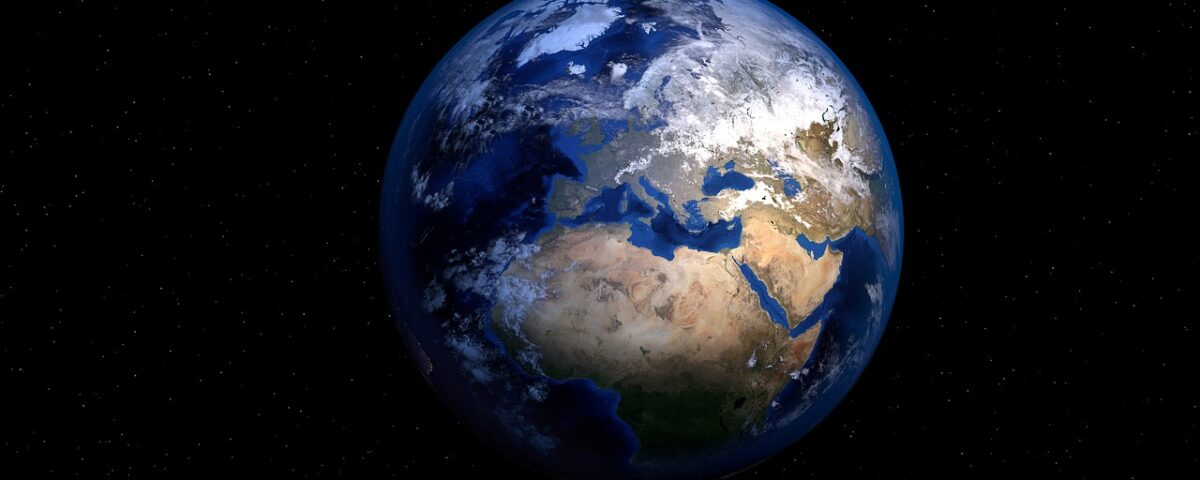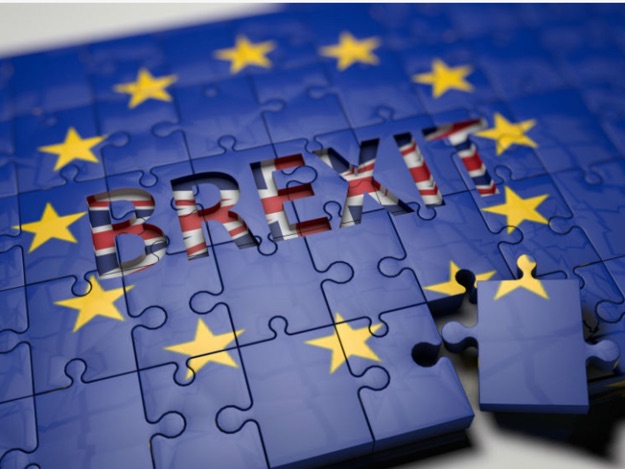
How Spending More Is Like Eating More
May 16, 2022
India’s AC Tradeoffs
May 18, 2022During 2021, the U.S. at 24.4% and China, 17.9%, contributed the largest slices of the global GDP. Moving down the list, next we have Japan (5.4%), Germany (4.5%), and then the U.K (3.3%):
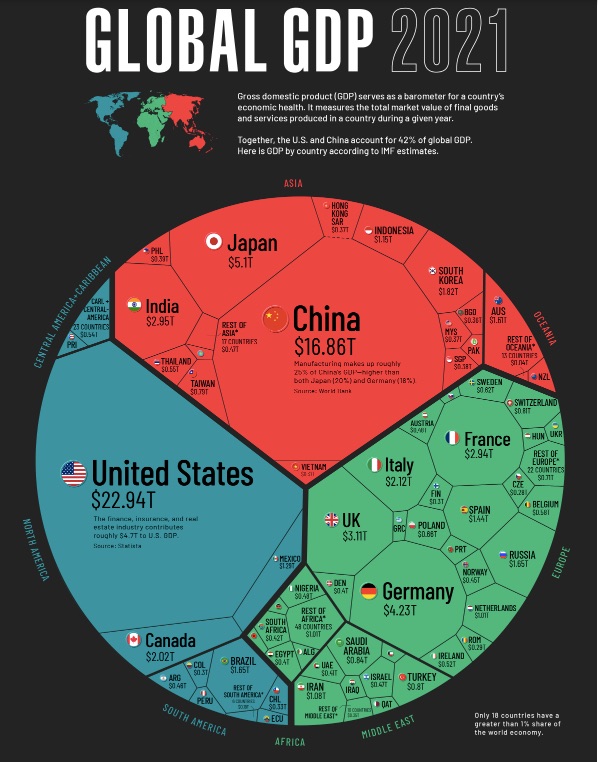
So yes, viewed individually, we have gargantuan output numbers. But they do not exist alone. All connect to each other.
Globalization
The Past
Measuring globalization, we include the goods and services, people, investment, and technology that nations share. Looking back, scholars identify “waves” of globalization. Fueled by steamships, railroads, and the telegraph, economic cooperation increased during the late 19th century. But it diminished after a World War I dip and two decades of protectionism. Then though, because of the proliferation of trade agreements that removed national barriers, of technology that let us connect more easily, and of global supply chains and multinational corporations, the surge accelerated after the Second World War.
Now
Now though, our links have begun to unravel. During the Great Recession (Dec. 2007-June 2009), global value chains stopped expanding. Then, more recently, with tariffs, Covid, supply chain snarls, and the Ukraine invasion, the downward trend continued.
The Future
Predicting what might shape future globalization, one economist cited technology, policy, and sustainability:
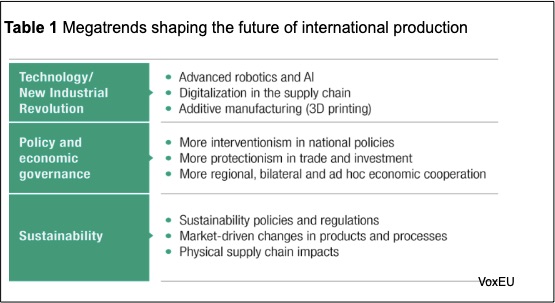
The result could be “friend-shoring.” Perceived as a way to sidestep autocracies, maintain shared values, and some of the efficiencies of trade, one solution is limiting trade to your friends.
Our Bottom Line: Measuring Global Connectedness
During November 2021, DHL described our global connectedness. Quantifying trade, capital, information, and people they conclude that only the people category plummeted:
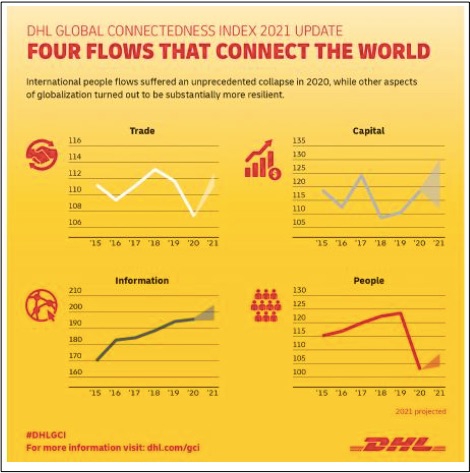
Based on some of their criteria, DHL suggests that globalization is not as prevalent as we have assumed. They looked at exports, fixed investment, telephone calls, and migration:
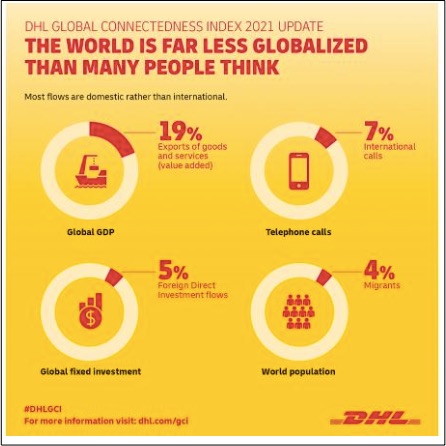
With the Ukraine invasion, we should ask if again the future of globalization has shifted.
My sources and more: If you want to start with defining globalization, I suggest this PIIE paper. Then, this WSJ column and this Project Syndicate column added insight and detail. And finally, VoxEU and “friend shoring” completed the picture.
![econlifelogotrademarkedwebsitelogo[1]](/wp-content/uploads/2024/05/econlifelogotrademarkedwebsitelogo1.png#100878)

